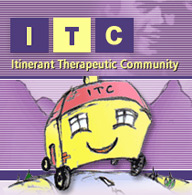Best use of IM&T to promote patient safety

Winner:
Cumbria Partnership NHS Foundation Trust Psychotherapy/ITC Service

The psychotherapy department at Cumbria Partnership NHS Foundation Trust faced a number of problems that will be familiar to similar services across the country.
“We needed to provide a day care community to a differing and very mixed community of service users, most with borderline psychiatric disorders,” says Dr Mike Rigby, consultant psychiatrist in psychotherapy and clinical lead for the service.
“Many of the service users have been severely disturbed at some point and can sometimes present in crisis and be very difficult to work with and treat.”
Out-of-hours, service users were very likely to turn up in A&E having self-harmed or overdosed; and many were involved with a whole range of services, including mental health, social services and GPs, the police and probation service.
“One of our main problems was that we couldn’t offer a five-day a week service, but we needed to provide safety to service-users between their face-to-face sessions,” Dr Rigby continues. “With appointments only available once a week, there were concerns that it could be dangerous to ‘stir up’ a service user and then not see them for another week.”
Persistence of geography
The department also faced a specific, geographical problem. Cumbria is the second largest county in England, but has a population of fewer than 500,000 residents; 50% of whom live in widely-spaced rural communities, making transport and access very legitimate issues.
“Because of the distances involved, there would have been a problem in knowing where to put a directly supported day-care community,” says Dr Rigby. “Cumbria is such a spread-out county and the roads aren’t the best, so getting to an actual place would have posed a real problem for some service-users.”
Instead, the department looked for an innovative, part-virtual solution. A two-day therapeutic community was set up, teamed with www.itc4u.org – a supporting network run by service users for out-of-hours care.
“The daytime therapeutic community provides a safe environment with clear rules and boundaries where people with similar problems can meet, come to terms with their past and provide mutual support,” says Dr Rigby.
“It’s a bit like what should go on in a good, healthy family and it offers a comprehensive blend of outreach work, formal psychotherapies and training activities for service users.
“With the website alongside, the beauty is that it allows us to transfer the culture of our therapeutic community to a dedicated social networking site so that our work can continue beyond the two days each week when we meet face to face.”
Peer to peer support
Following a working group in 2002, the project gained funding in 2004, and began life a year later as one of the pilots in the Department of Health’s National Programme for the Development of Services for People with Personality disorders.
The site features P2P (peer to peer), a web-based initiative developed by Dale Ashman (an ex service-user lead and co-founder of Borderline UK) and Xenzone Ltd.
“One of the main concerns was that the website should serve the function of providing group support, but that it should also curb potentially harmful one-to-one contacts,” says Elaine Bousfield, managing director of Xenzone.
“Dr Rigby was very clear that [the department] didn’t want patients to be able to message each other, so the group dynamic of the community could be maintained. Apart from that, it’s a relatively simple, content-managed website. There’s no third party software to run and it has open-source coding, so costs are really kept down to a minumum.”
The site is split into different levels of access, ranging from a home page and a magazine, through a number of message boards to online group conferencing and a chat room.
It is moderated by three service users, who are elected on a monthly basis into the positions of chairman, secretary and deputy chairman of the community.
These three members moderate the message boards, provide online support and ensure that important issues are brought to the attention of community members and staff. In particular, they look out for online exchanges that raise significant concern for the safety of service users.
“One of the key aims of the site was to provide out-of-hours interventions and support in order to prevent crises,” says Dr Rigby, “but the site also works by carrying on the therapeutic community group dynamic into a time outside work hours.
“There’s a service user/staff board where the moderators can alert us is someone is in distress or in crisis and we’ve found that little by little, the service users start to rely more on the therapeutic community and they stop focusing so much on medication and visits to their GP.
“It’s allowed service users who had previously been unable to engage in treatment to do so safely and it seems to have led to a drop in suicide attempts and fall in self-harm incidents – which speaks for itself really.”
The E-Health Insider Awards 2010 in association with BT seek out and reward outstanding work within the UK healthcare IT sector. Entries are open now on the dedicated awards website.
The deadline for entries is 4 June.
The awards will be presented on Wednesday, 6 October in the Grand Hall at the Grand Connaught Rooms, Covent Garden, London. For more information or to reserve a table, please visit the awards website.
